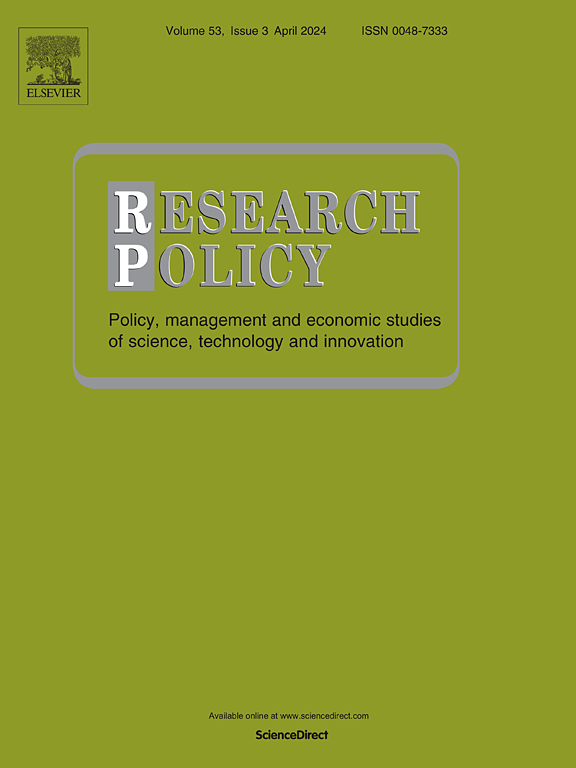Reaching for the society: The commercialization effects of NASA technology licensing
IF 8
1区 管理学
Q1 MANAGEMENT
引用次数: 0
Abstract
How does technology transfer of government inventions affect follow-on innovation? Recognizing the importance of technology development and commercialization, the United States enacted several policies in the 1980s aimed at promoting the commercialization of government-funded research through licensing. However, it remains debated whether patenting and licensing effectively stimulate welfare-enhancing follow-on innovation. To address this question, we leverage technology data from NASA’s Technology Transfer Program, which facilitates licensing of NASA inventions to third parties, and combine it with United States patent data. Our analysis shows that exclusive licensing announcements are associated with increases in subsequent technological developments. These follow-on innovations originate from diverse entities and locations and span various technology fields, indicating substantial knowledge spillovers. Consequently, our findings suggest that commercialization via licensing of government inventions represents a policy instrument for increasing societal benefits.
走向社会:NASA技术许可的商业化效应
政府发明的技术转移如何影响后续创新?认识到技术发展和商业化的重要性,美国在20世纪80年代制定了几项政策,旨在通过许可促进政府资助的研究的商业化。然而,专利和许可是否有效地刺激了提高福利的后续创新仍然存在争议。为了解决这个问题,我们利用了NASA技术转让计划中的技术数据,该计划促进了NASA发明向第三方的许可,并将其与美国专利数据结合起来。我们的分析表明,独家授权公告与后续技术发展的增长有关。这些后续创新来自不同的实体和地点,跨越不同的技术领域,显示出大量的知识溢出。因此,我们的研究结果表明,通过政府发明许可的商业化是增加社会效益的政策工具。
本文章由计算机程序翻译,如有差异,请以英文原文为准。
求助全文
约1分钟内获得全文
求助全文
来源期刊

Research Policy
MANAGEMENT-
CiteScore
12.80
自引率
6.90%
发文量
182
期刊介绍:
Research Policy (RP) articles explore the interaction between innovation, technology, or research, and economic, social, political, and organizational processes, both empirically and theoretically. All RP papers are expected to provide insights with implications for policy or management.
Research Policy (RP) is a multidisciplinary journal focused on analyzing, understanding, and effectively addressing the challenges posed by innovation, technology, R&D, and science. This includes activities related to knowledge creation, diffusion, acquisition, and exploitation in the form of new or improved products, processes, or services, across economic, policy, management, organizational, and environmental dimensions.
 求助内容:
求助内容: 应助结果提醒方式:
应助结果提醒方式:


